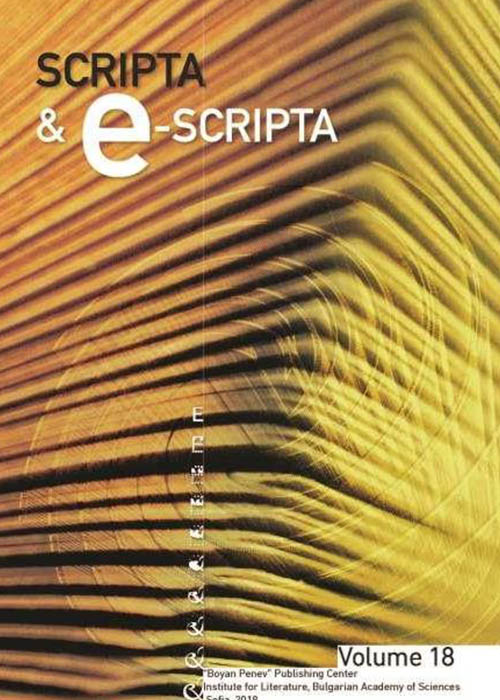Healing Practices Performed by St. Gregory of Agrigentum in his Vita by Leontius
Лечебните практики, прилагани от св. Григорий Акрагантийски в неговото житие от Леонтий

- Author(s): Ekaterina Todorova
- Subject(s): Philology // Linguistics // palaeoslavic studies //
-
Published by: Institute for Literature BAS

- Print ISSN: 1312-238X
- Summary/Abstract:
Christian hagiographic literature chooses as its heroes’ people whose feeble flesh is in stark contrast to the greatness of the spirit. The saint is endowed with supernatural knowledge, works miracles, foretells, protects and heals people. The author discusses the healing practices in the Slavic translation of the Vita of St. Gregory of Agrigentum, as presented in a 15th-century copy of a Reading Menaion composed according to the Jerusalem typikon (Tărnovo type orthography, Moldavian provenance, kept in the Dragomirna monastery (Drag 706/1795), Romania). St. Gregory of Agrigentum is a senior clergyman and the goal of his healing skills is to show God’s grace and the power of Christian teaching from one side and the authority of his position as bishop from the other.
Journal: Scripta & e-Scripta vol. 21, 2021
-
Page Range: 329-339
No. of Pages: 11
Language: English - LINK CEEOL:
-
Ekaterina TodorovaBulgariaInstitute for Literature BASDescription
Ekaterina Todorova is an Assist. Prof. at the Institute for Literature, Bulgarian Academy of Sciences. She holds a degree in Russian Philology from Sofia University St. Kliment Ohridski. Also, she holds a PhD degree on the topic “Saints Healers in the Hagiography of the Orthodox World” at the Centre for Slavo-Byzantine Studies ‘Prof. Ivan Dujčev’, Sofia University St. Kliment Ohridski. Her publications are in the field of Old Russian and Old Bulgarian literature. She is interested in hagiography, the history of medicine as well as non-verbal communication. The author is a member of the European Association of Biblical Studies (EABS) and the Society of Biblical Literature (SBL).
-
KEYWORDS: St. Gregory of Agrigentum // healer // Slavic translation of the Vita // Tărnovo orthography //
-